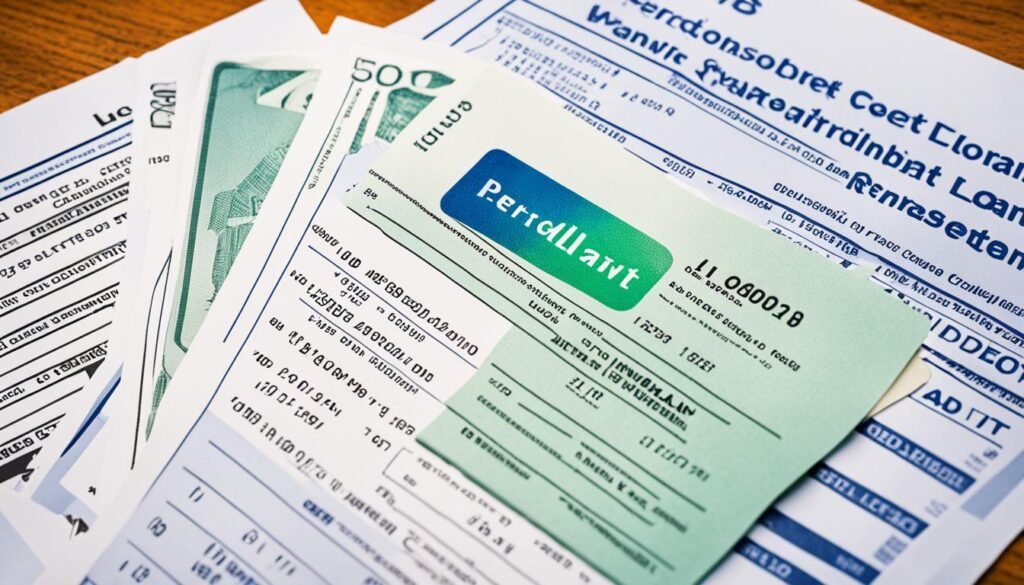Are you in need of quick and easy financing solutions? Look no further than Capital One! As a trusted financial institution, Capital One offers personal loans that are designed to meet your specific needs. Whether you’re dealing with unexpected medical bills, consolidating debts, or funding a personal expense, a Capital One personal loan can provide the financial assistance you require.
With Capital One, the loan application process is simple and straightforward. You can easily apply online and get a quick decision, allowing you to access the funds you need in no time. Capital One offers competitive interest rates and flexible loan amounts, enabling you to borrow the specific amount required to address your financial situation.
When it comes to personal loans, Capital One is a trusted name, known for its commitment to customer satisfaction and financial expertise. Their dedicated team of professionals will guide you through the loan process, ensuring that you have a clear understanding of the terms and conditions.
Key Takeaways:
- Capital One offers personal loans that provide simple and quick finance solutions.
- Loan applications can be easily completed online with quick approval.
- Flexible loan amounts and competitive interest rates are available to meet your specific borrowing needs.
- Capital One is committed to customer satisfaction and provides expert guidance throughout the loan process.
- Consider Capital One for your personal loan needs and experience the seamless financing experience they offer.
What is an installment loan?
An installment loan is a type of personal loan that allows you to borrow a specific amount of money and repay it in regular installments over a set period of time. This type of loan provides you with the flexibility to borrow the money you need, whether it’s for an unexpected expense, home improvement projects, or debt consolidation.
When you take out an installment loan, the borrowed amount is divided into equal payments, or installments, that you will pay back over the agreed-upon period. Each installment consists of a portion of the loan amount and accrued interest. The repayment schedule is typically set, so you know exactly when and how much to pay.
One of the benefits of an installment loan is that it allows you to budget and manage your payments effectively. With a fixed repayment schedule, you can plan your finances accordingly and ensure that you’re making the necessary payments on time.
Here’s an example to illustrate how an installment loan works:
| Loan Amount | Interest Rate | Repayment Period | Monthly Installment |
|---|---|---|---|
| $5,000 | 8% | 36 months | $156.66 |
Image:
“An installment loan allows borrowers to borrow a specific amount of money and repay it in regular installments over a set period of time, making it easier to manage and budget.”
When considering an installment loan, it’s important to evaluate your financial situation and determine if it aligns with your borrowing needs and repayment capabilities. Take into account the interest rates, fees, and terms offered by different lenders to find the best loan option for you. By borrowing responsibly and making timely payments, an installment loan can be a valuable financial tool to help you achieve your goals.
Collateral and personal loans
When it comes to personal loans, one crucial distinction to understand is the role of collateral. Collateral refers to an asset, such as a car or home, that can be used to secure a loan. This type of loan is known as a secured loan, as it is backed by the collateral provided by the borrower. On the other hand, unsecured loans are personal loans that do not require collateral.
Secured loans offer lenders a form of collateral as collateral for the loan, reducing their risk in case the borrower defaults on the loan. In contrast, unsecured loans do not require collateral and are based solely on the borrower’s creditworthiness and ability to repay the loan.
While secured loans typically offer lower interest rates due to the added security for the lender, unsecured loans may come with higher interest rates since there is no collateral involved. This is because the lender assumes a greater risk by lending money without any asset to recover in case of default.
Collateral and Unsecured Loans
Unsecured loans provide borrowers with the advantage of not risking the loss of collateral in case of financial difficulties. This can be particularly beneficial for those who do not have valuable assets or prefer not to put their assets at risk.
However, it is important to note that the interest rates on unsecured loans may be higher compared to secured loans due to the increased risk for the lender. Borrowers should carefully consider their financial situation and repayment ability before opting for an unsecured loan.
Ultimately, the decision between a secured or unsecured loan depends on individual circumstances and preferences. Some borrowers may be able to secure a lower interest rate with a secured loan, while others may prioritize the flexibility and convenience of an unsecured loan.
“Whether you choose a secured or unsecured loan, it’s essential to carefully assess your financial situation and consider the terms, interest rates, and repayment plans offered by different lenders.”
In summary, collateral plays a significant role in determining the type of loan a borrower can obtain. Secured loans, backed by collateral, offer lower interest rates but come with the risk of losing the asset. Unsecured loans, on the other hand, do not require collateral but may come with higher interest rates. It’s important for borrowers to weigh the pros and cons of each option and choose the loan that best suits their financial needs.
Using a personal loan to pay off debt

One popular use of personal loans is to consolidate debt. By taking out a personal loan to pay off multiple debts, such as credit card balances, you can simplify your repayment process and potentially save money on interest. Personal loans often offer lower interest rates compared to credit cards, making it beneficial to consolidate your debt and focus on repaying a single loan.
If you’re struggling with multiple debts and high-interest rates, a personal loan can provide a practical solution. By combining all your debts into one manageable loan, you can streamline your finances and reduce your monthly payment obligations.
When considering a personal loan to consolidate debt, it’s essential to evaluate your current financial situation and establish a realistic repayment plan. Assess your total debt amount, interest rates, and monthly repayment capabilities. This evaluation will help you determine if a personal loan is the right choice for your debt consolidation needs.
The Benefits of Debt Consolidation with a Personal Loan
Consolidating your debts with a personal loan offers several advantages:
- Lower Interest Rate: Personal loans typically have lower interest rates compared to credit cards. By consolidating your debt into a personal loan, you may be able to reduce the overall interest you pay, allowing you to save money over time.
- Simplified Repayment: Instead of juggling multiple due dates and payment amounts, a personal loan enables you to consolidate your debts into a single monthly payment. This streamlines your finances and simplifies your repayment process.
- Faster Debt Payoff: With a lower interest rate and a focused repayment plan, you can pay off your debt faster. By putting more money towards the principal balance instead of interest, you can make significant progress in reducing your debt.
However, it’s important to note that consolidating debt with a personal loan is not a one-size-fits-all solution. It’s crucial to consider your financial goals, existing debt structure, and personal circumstances before making a decision. Evaluate the terms and conditions of different personal loan options, taking into account interest rates, repayment terms, and any associated fees.
Consolidate your debts with a personal loan to simplify your repayment process, lower your interest rate, and focus on repaying a single loan.
Is a Personal Loan Right for You?
Before consolidating your debt with a personal loan, carefully assess your financial situation. Determine if a personal loan aligns with your goals and if it’s the best option for your specific circumstances. Consider the following:
- Your current debt structure: Evaluate your existing debts, including credit card balances, loans, and other financial obligations. Determine the total amount owed, interest rates, and monthly payments.
- Interest rates: Compare the interest rates of your existing debts with the interest rate offered by personal loan providers. Calculate potential savings and determine if the lower interest rate justifies the cost of a personal loan.
- Repayment ability: Assess your monthly income and expenses to ensure you can comfortably afford the monthly payments of a personal loan. Create a budget and consider your future financial goals.
- Financial discipline: Consolidating your debt with a personal loan requires discipline and commitment to stick to a repayment plan. Determine if you’re prepared to make the necessary sacrifices and changes in your spending habits to successfully pay off your debt.
Remember, a personal loan should not be seen as a quick fix or an excuse to continue overspending. It’s important to address the underlying causes of your debt and develop responsible financial habits to avoid falling back into debt.
| Debt Consolidation Considerations | Pros | Cons |
|---|---|---|
| Lower Interest Rates | Reduced interest payments | May require good credit score |
| Simplified Repayment | Single monthly payment | May extend repayment period |
| Faster Debt Payoff | Clear debt sooner | Requires discipline and financial management |
Make an informed decision by weighing the pros and cons of debt consolidation with a personal loan. Consider consulting a financial advisor or credit counselor to ensure you fully understand the implications and benefits.
Understanding the details of personal loans

Before obtaining a personal loan, it is important to consider several factors. Assess your budget to ensure you can comfortably make the monthly payments. Take into account the additional fees associated with personal loans, such as origination fees and late payment fees.
It is crucial to distinguish between wants and needs to determine if a personal loan is the right financial decision for your situation. Consider whether the loan is for a necessary expense or for something that can be postponed or achieved through alternative means.
“Understanding your financial goals and priorities will help you make an informed decision about whether to take on additional debt through a personal loan.” – Financial Advisor
By carefully assessing your financial situation and evaluating your needs, you can make an informed decision about whether a personal loan is the right option for you.
It’s also essential to be aware of the key terms and conditions of the loan, such as the duration of repayment and any penalties for early repayment or late payments. Additionally, take note of any potential restrictions or limitations on how the loan proceeds can be used. Being fully informed about these details will help you manage your loan effectively and avoid any unexpected surprises.
Remember, it is always recommended to review and compare multiple loan offers before making a final decision. Each lender may have different terms, interest rates, and fees, so it’s crucial to choose the option that best fits your needs and financial circumstances.
Comparison of Additional Fees for Personal Loans
| Fee | Description |
|---|---|
| Origination Fee | A fee charged by some lenders for processing the loan application and setting up the loan. |
| Late Payment Fee | A penalty fee incurred when the borrower fails to make the monthly loan payments on time. |
| Prepayment Fee | A fee charged by some lenders if the loan is paid off before the agreed-upon term. |
Understanding these fees will help you calculate the total cost of the loan and consider them when comparing different loan options. It’s essential to factor in both the interest rate and the associated fees to make an accurate assessment of the overall affordability of the loan.
Why you might get a personal loan

Personal loans offer a versatile borrowing option for a range of financial needs. Whether you’re facing a medical emergency, dealing with high credit card debt, or planning to start a small business, a personal loan can provide the funds you need to achieve your goals.
One of the common reasons people choose to apply for a personal loan is to cover unexpected medical expenses. When faced with an unforeseen medical emergency, such as a sudden illness or injury, the cost of treatment and care can be overwhelming. A personal loan can help you manage these expenses and provide the necessary financial support during challenging times.
“A personal loan can be a lifeline during medical emergencies, offering the funds needed to cover critical healthcare costs.”
Another common use for personal loans is to pay off high-interest credit card debt. If you’re struggling to keep up with multiple credit card payments and accumulating interest, a personal loan can offer a solution. By consolidating your credit card debt into a single loan with a potentially lower interest rate, you can simplify your finances and save money in the long run.
“Personal loans provide a smart strategy for tackling credit card debt and regaining control over your financial situation.”
Additionally, personal loans can support aspiring entrepreneurs looking to start a small business. Whether you need funds for equipment, inventory, or marketing campaigns, a personal loan can provide the necessary capital to bring your business idea to life. With flexible repayment terms, you can focus on building your business without the immediate pressure of large financial commitments.
“A personal loan can be the catalyst for turning your small business dreams into a reality, providing the financial resources you need to fuel your entrepreneurial pursuits.”
Regardless of your specific needs, personal loans offer convenience, accessibility, and flexibility. They can be tailored to suit your unique circumstances and provide the financial support required to navigate various life challenges and opportunities.
Can you get a personal loan with fair credit?
When it comes to getting a personal loan, your credit score plays a significant role in the approval process and the interest rate you can secure. While there is no specific minimum credit score required for a personal loan, having fair credit may impact your chances of approval and the terms you are offered. Fair credit generally refers to a credit score between 580 and 669, according to FICO.
Lenders use credit scores to evaluate an individual’s creditworthiness and assess the risk of lending money. While fair credit may not disqualify you from getting a personal loan, it could make the process more challenging. Lenders may consider other factors, such as your income, employment history, and debt-to-income ratio, when determining your eligibility.
It’s important to note that even if you have fair credit, you may still be able to secure a personal loan. Many lenders offer loans specifically designed for individuals with fair credit scores.
It is advisable to compare different lenders to find one that suits your specific financial needs. Each lender has its own criteria for evaluating creditworthiness and determining loan approval. By exploring multiple options, you can find a lender that is more likely to approve your loan application despite your fair credit score.
| Lender | Minimum Credit Score Requirement | Loan Approval Chances |
|---|---|---|
| Bank A | 600 | High |
| Online Lender B | 550 | Moderate |
| Credit Union C | 580 | Low |
Note: The table above provides a general overview and is for illustrative purposes only. Each lender has its own approval criteria, and the terms may vary.
By carefully reviewing lenders’ requirements and comparing loan options, you can increase your chances of getting a personal loan with fair credit.
Where to get loans for fair credit
If you have fair credit and are in need of a personal loan, there are several options available to you. Banks, credit unions, and online lenders are willing to work with individuals who have fair credit scores. It is essential to research and compare various lenders to find the best fit for your financial situation. By considering rates, loan terms, and approval requirements, you can make an informed decision.
Comparing Lenders
When searching for a personal loan with fair credit, it is crucial to compare lenders to ensure you secure the most favorable terms and conditions. Take the time to evaluate different banks, credit unions, and online lenders. Look for lenders that specialize in working with individuals with fair credit. Review their interest rates, repayment periods, and any additional fees that may be involved.
“Comparing lenders allows you to find the best personal loan option for your needs, helping you to secure the funds you require without compromising your financial stability.”
Research Loan Terms and Rates
While securing a personal loan with fair credit may be more challenging, it is still possible to find competitive rates and favorable loan terms. Before committing to a lender, carefully assess the interest rates they offer. Look for lenders that provide fixed interest rates to ensure your monthly repayments remain consistent. Additionally, consider loan term options that align with your budget and repayment ability.
Meeting Approval Requirements
Each lender may have different approval requirements for personal loans. While fair credit may not disqualify you from obtaining a loan, ensure you meet the lender’s specific criteria. Some lenders may require proof of income, employment verification, or a credit check. By understanding the approval requirements upfront, you can streamline the application process and increase your chances of approval.
Considering Alternative Lenders
If traditional banks and credit unions are not offering suitable terms or approvals for personal loans, consider exploring alternative online lenders. Online lenders often have more flexible approval criteria and may be more willing to work with individuals with fair credit. Be sure to review the reputation and credibility of online lenders before proceeding with any loan agreements.
Overall, with diligent research and comparison, it is possible to find personal loan options even with fair credit. Explore different lenders, compare rates and terms, and carefully assess your repayment ability before making a final decision.
How to get approved for a personal loan with fair credit

If you have fair credit and are in need of a personal loan, there are several strategies you can employ to increase your chances of approval. By taking the following steps, you can improve your eligibility and secure the loan you need.
1. Compare Lenders and Loan Options
When applying for a personal loan with fair credit, it’s crucial to compare lenders and their loan options to find the best fit for your financial situation. Look for lenders who specialize in working with individuals with fair credit scores and offer competitive interest rates and favorable terms.
2. Get Pre-Qualified or Pre-Approved
Consider getting pre-qualified or pre-approved for a personal loan. Pre-qualification involves a soft credit check that allows lenders to estimate your eligibility based on basic information. Pre-approval, on the other hand, requires a hard credit check but provides a more accurate assessment of your qualification and loan terms.
3. Consider a Co-Signer
If your credit score is not strong enough to secure a personal loan on your own, you can enhance your chances of approval by having a co-signer with good credit. A co-signer agrees to take responsibility for the loan if you default, reducing the lender’s risk and increasing the likelihood of loan approval.
4. Focus on Credit Improvement
While awaiting loan approval or even before applying, focus on improving your credit score. Responsible credit use, such as making timely payments and keeping credit card balances low, can positively impact your creditworthiness. Regularly monitor your credit report to identify and address any errors or discrepancies that may be affecting your score.
To summarize, getting approved for a personal loan with fair credit is possible. By comparing lenders, getting pre-qualified, considering a co-signer, and working on credit improvement, you can improve your chances of loan approval and secure the financing you need.
| Lender | Interest Rate | Loan Amounts | Requirements |
|---|---|---|---|
| ABC Bank | 8.99% | $1,000 – $50,000 | Fair credit score, proof of income |
| XYZ Credit Union | 10.50% | $5,000 – $100,000 | Fair credit score, membership |
| PQR Online Lending | 12.99% | $2,000 – $35,000 | Fair credit score, employment verification |
Personal loan alternatives

If a personal loan is not the right option for you, there are alternative financing options available. Here are some options you can consider:
1. Credit Cards
You can utilize credit cards to cover your financial needs. Credit cards provide the convenience of accessing funds instantly. However, it’s important to manage credit card debt responsibly to avoid high interest charges.
2. Balance Transfers
If you have existing credit card debt with high interest rates, you can explore balance transfer options. By transferring your balances to a credit card with a lower interest rate, you can save money on interest and pay off your debt more efficiently.
3. Cash Advances
Another alternative is to consider cash advances. Some credit cards allow you to withdraw cash from ATMs or receive cash advances directly. However, keep in mind that cash advances often come with higher interest rates and fees, so it’s important to carefully consider the terms before proceeding.
4. Peer-to-Peer Lending
If you prefer a more personalized lending experience, peer-to-peer lending platforms can be a viable option. These platforms connect borrowers directly with individual lenders, offering competitive interest rates and flexible loan terms.
5. Credit Unions
Credit unions are non-profit financial institutions that often offer competitive rates and personalized service. They are member-owned and prioritize the needs of their members. Many credit unions have flexible lending criteria, making them a suitable alternative for individuals with fair credit scores.
| Options | Interest Rates | Loan Terms | Availability |
|---|---|---|---|
| Credit Cards | Varies depending on the card | Revolving credit | Generally available |
| Balance Transfers | Low promotional rates, then standard APR | Introductory period, then revolving credit | Available for eligible cardholders |
| Cash Advances | Higher APR than standard purchases | Usually short-term | Available for eligible cardholders |
| Peer-to-Peer Lending | Competitive rates based on borrower’s creditworthiness | Varies depending on the lender | Limited to platform availability |
| Credit Unions | Competitive rates based on borrower’s creditworthiness | Varies depending on the credit union | Membership required |
“Exploring alternative financing options can provide you with greater flexibility and convenience. However, it’s important to carefully evaluate the terms and conditions of each option to ensure it aligns with your financial goals and repayment ability.”
Capital One Personal Loan Alternative #3: Online Lenders
Ways to improve your credit score with responsible use
Capital One Personal Loan Alternative #2: Credit Unions
Also Read: Unlock Your Financial Goals with BHG Loan | Get Approved Today!
Conclusion
While Capital One does not currently offer unsecured personal loans, there are numerous alternative lenders available to meet your personal loan needs. It is essential to consider all your personal loan options before making a decision. By comparing loan options from different lenders, you can find a loan that offers competitive interest rates, flexible repayment terms, and loan amounts that suit your financial situation.
When considering personal loan options, it is also important to think beyond traditional banks and explore alternative lenders. Online lenders, credit unions, and peer-to-peer lending platforms often provide personal loan solutions for borrowers with varying credit scores, including fair credit. These lenders may have more lenient approval requirements and offer tailored loan terms to suit your needs.
Responsible borrowing is crucial when applying for a personal loan. Before taking out a loan, carefully assess your repayment ability by reviewing your budget and understanding your monthly cash flow. It is essential to borrow only what you can afford to repay and avoid overextending yourself financially. By practicing responsible borrowing habits, you can build a positive credit history, improve your credit score, and increase your chances of securing better loan terms in the future.
FAQs
Q: What are some alternatives to Capital One for personal loans?
A: Some alternatives to Capital One for personal loans include online lenders, credit unions, and other financial institutions.
Q: Does Capital One offer personal loans?
A: Yes, Capital One offers personal loans to eligible customers.
Q: How can I improve my credit score to qualify for a personal loan?
A: You can improve your credit score by making on-time payments, reducing debt, and monitoring your credit report for errors.
Q: What is the minimum credit score needed to qualify for a personal loan from Capital One?
A: The minimum credit score required to qualify for a personal loan from Capital One varies depending on the lender’s criteria.
Q: Can I get an unsecured personal loan from Capital One?
A: Yes, Capital One offers unsecured personal loans that do not require collateral.
Q: Does Capital One offer debt consolidation loans?
A: Yes, Capital One offers debt consolidation loans to help you manage your debt more effectively.
Q: Does Capital One still offer personal loans?
A: As of the latest information available, Capital One still offers personal loans to qualified applicants.
Q: What should I consider when applying for a personal loan?
A: When applying for a personal loan, consider the interest rate, fees, repayment terms, and any impact on your credit score.
